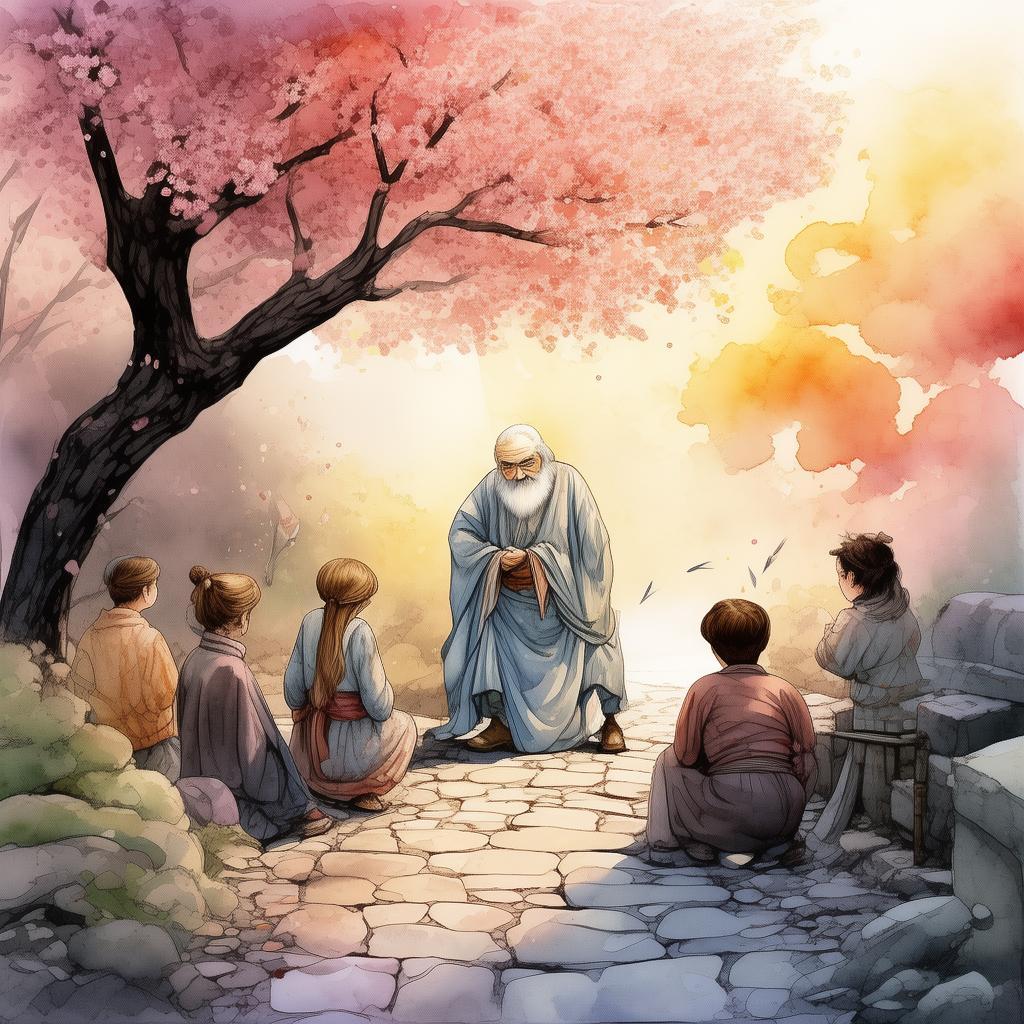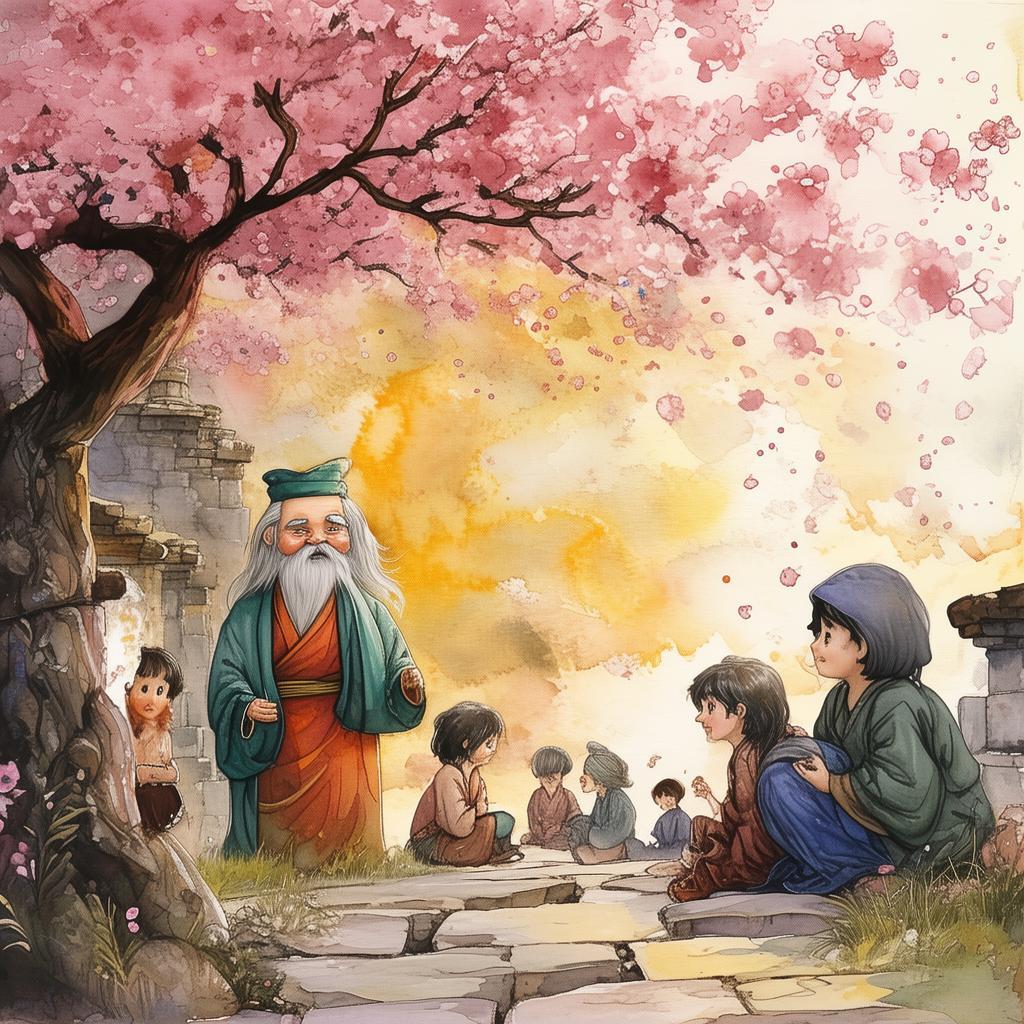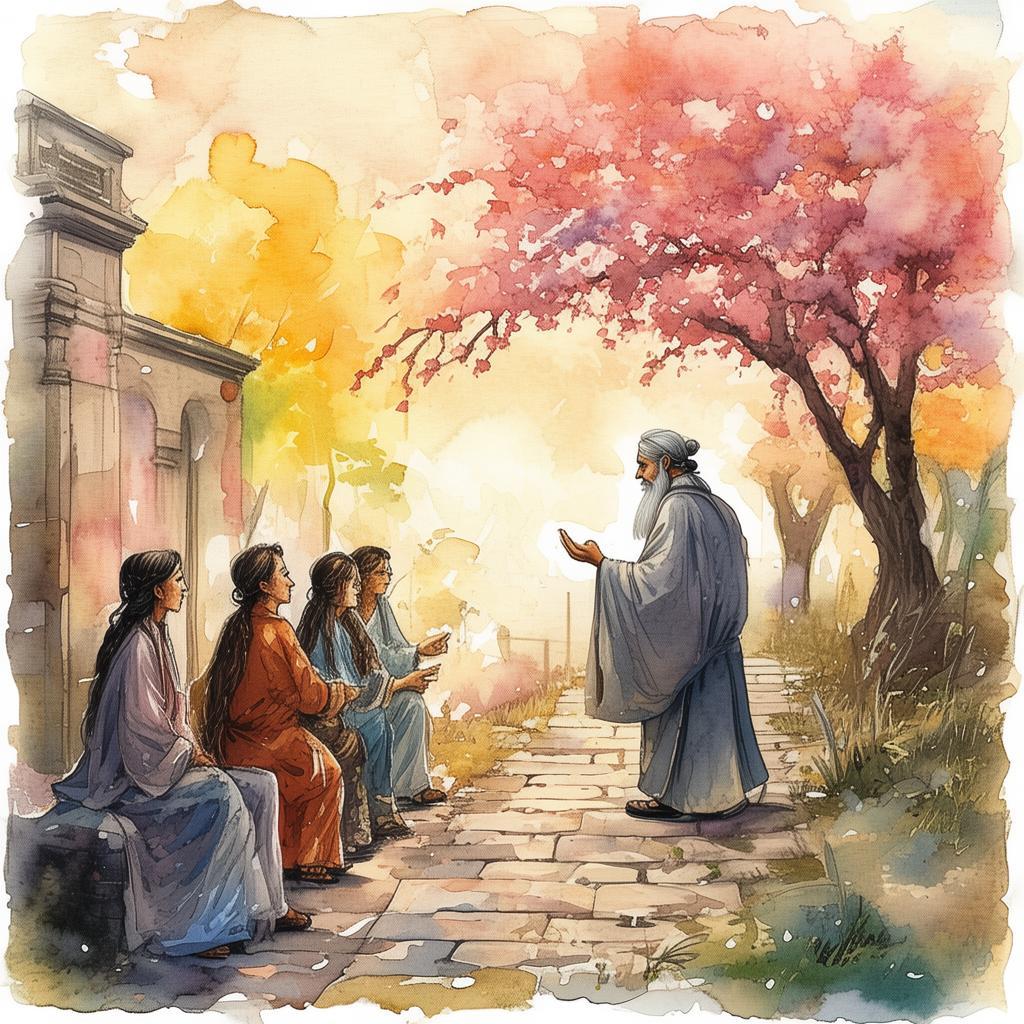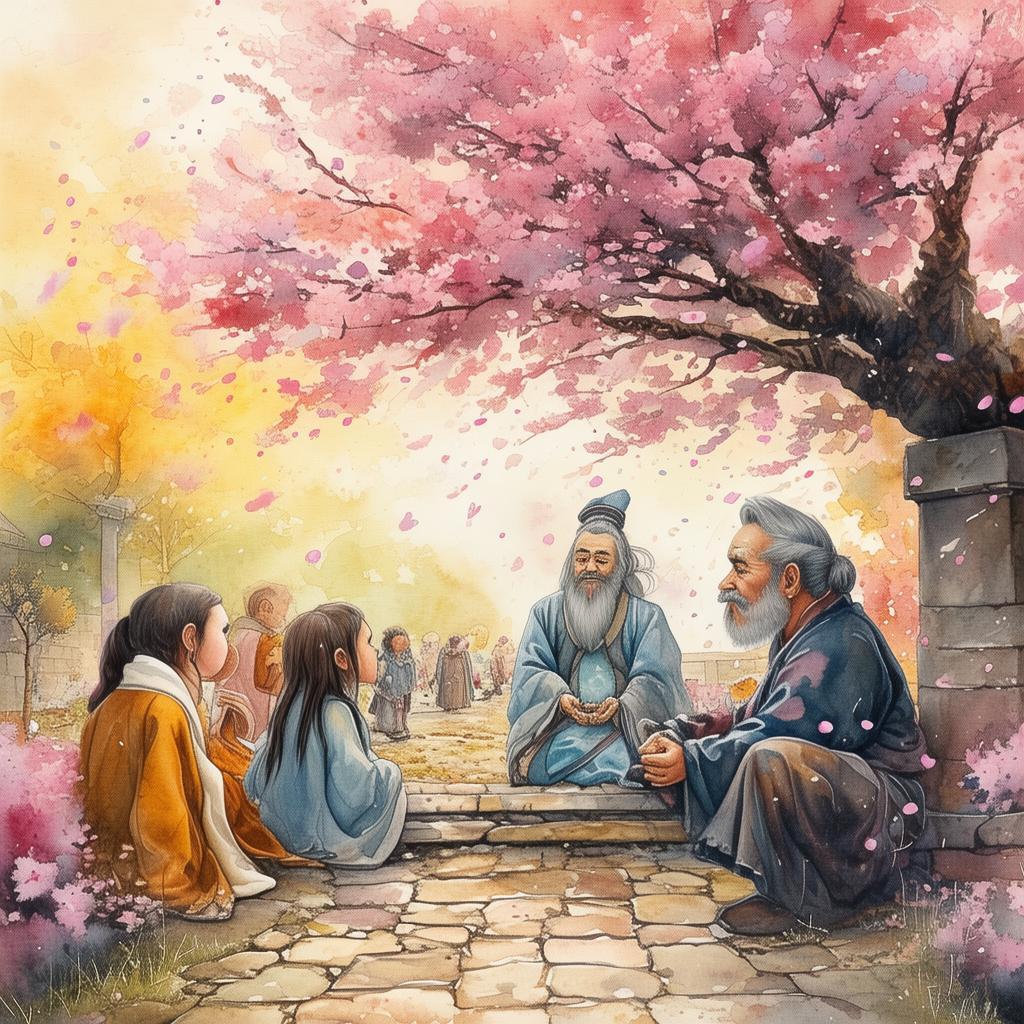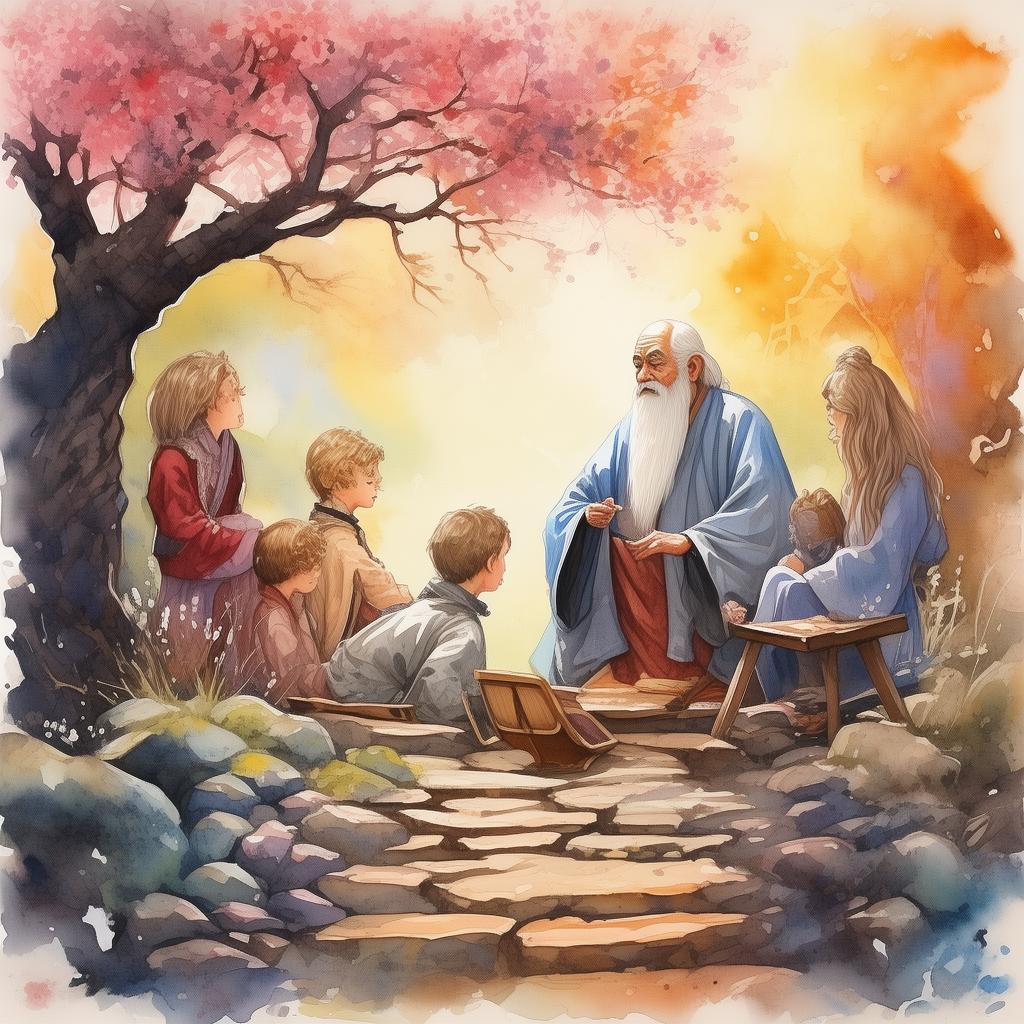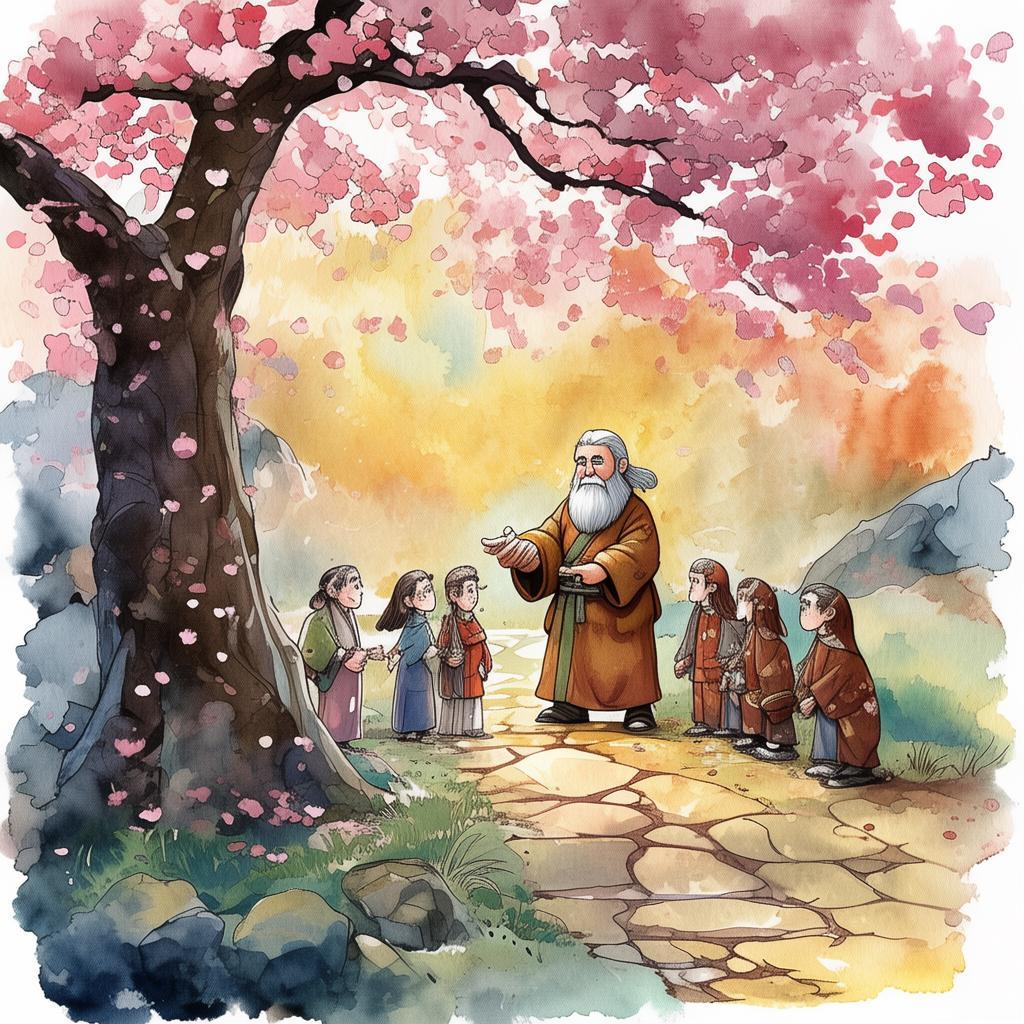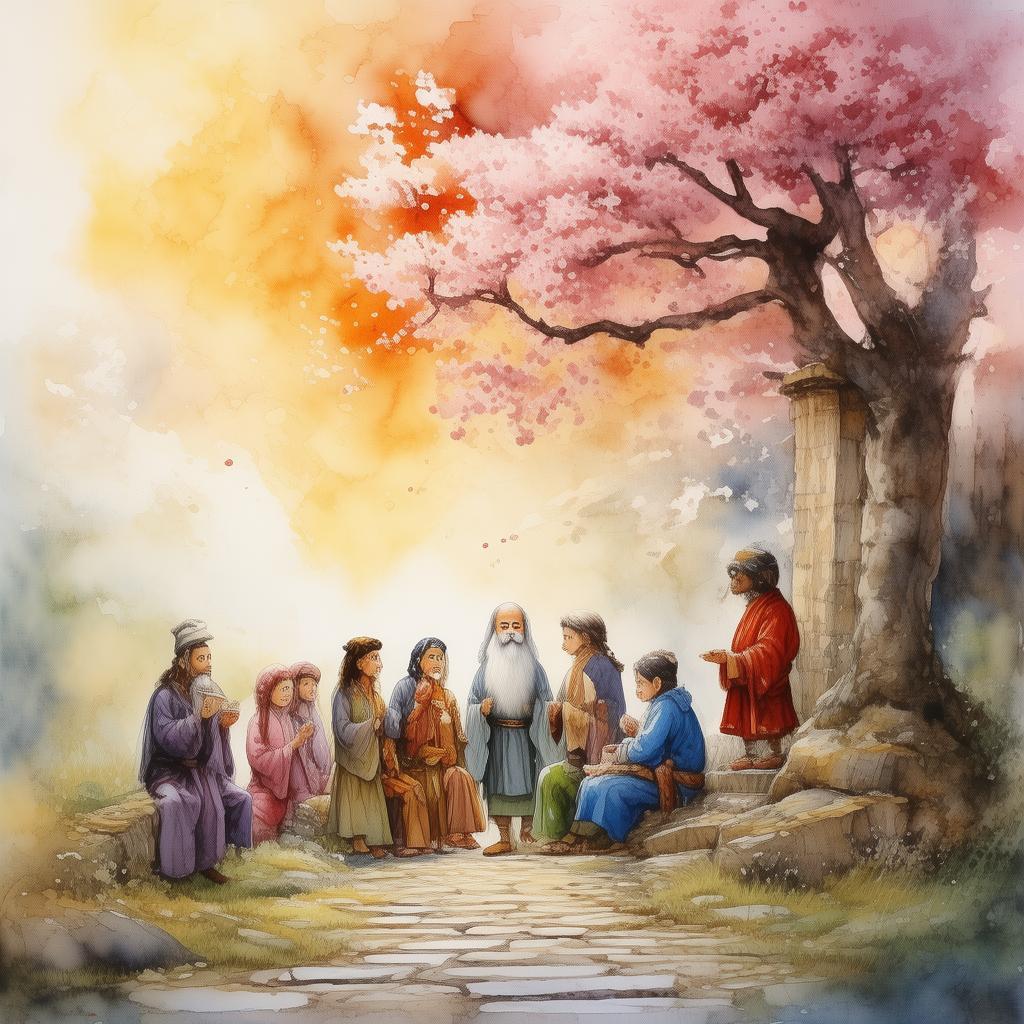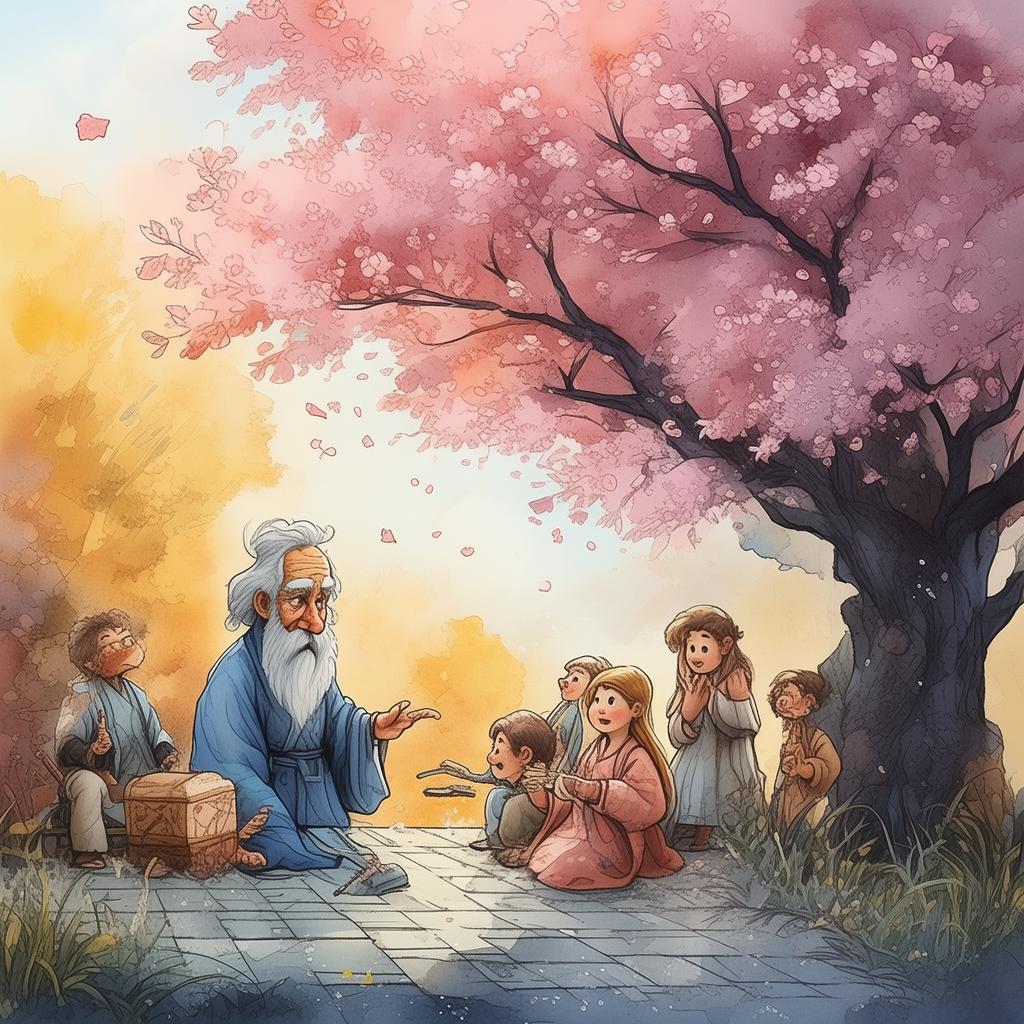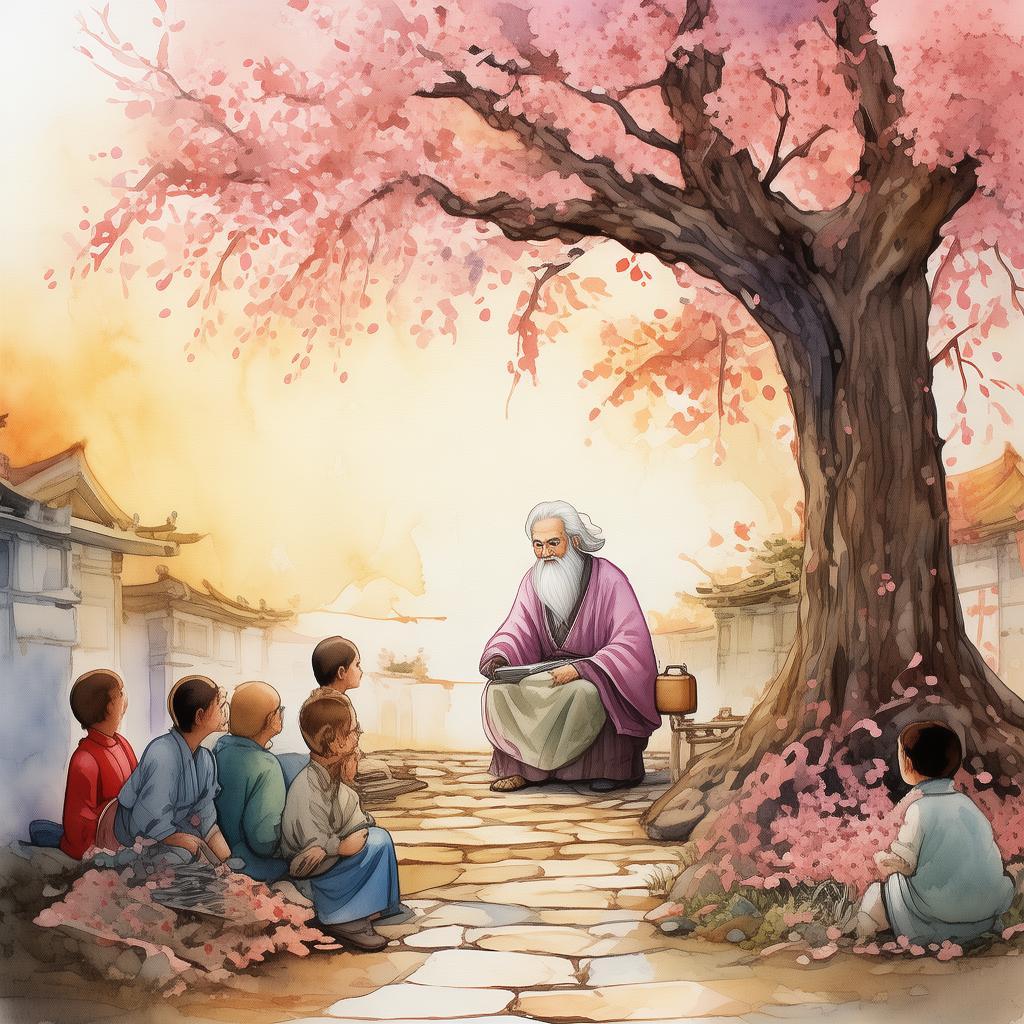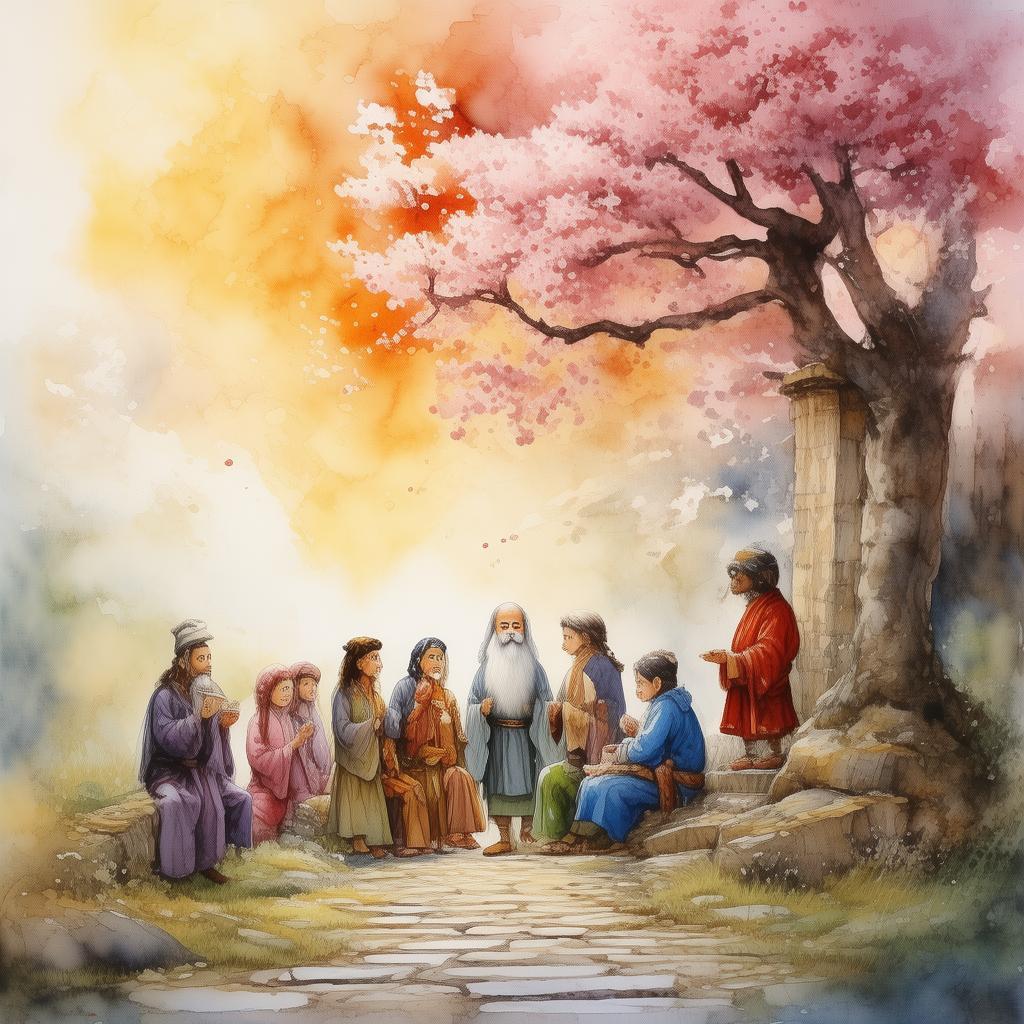The Legacy of the Silent City: A Quest for Reconciliation
In the heart of the ancient, enigmatic city of Shangcheng, there lay a legend that had been whispered for generations. The city, once a beacon of culture and power, had suddenly vanished without a trace. The people spoke of it in hushed tones, their eyes reflecting a mix of awe and sorrow. The legend spoke of a great library, filled with the knowledge of the ages, that had vanished with the city, leaving behind only silence.
Centuries passed, and the story of the lost city became part of the collective consciousness of the region. It was a story of untold secrets, a city where time had stood still, and history was a silent whisper. But for one young historian, Liang Wei, the story was more than a legend; it was a calling.
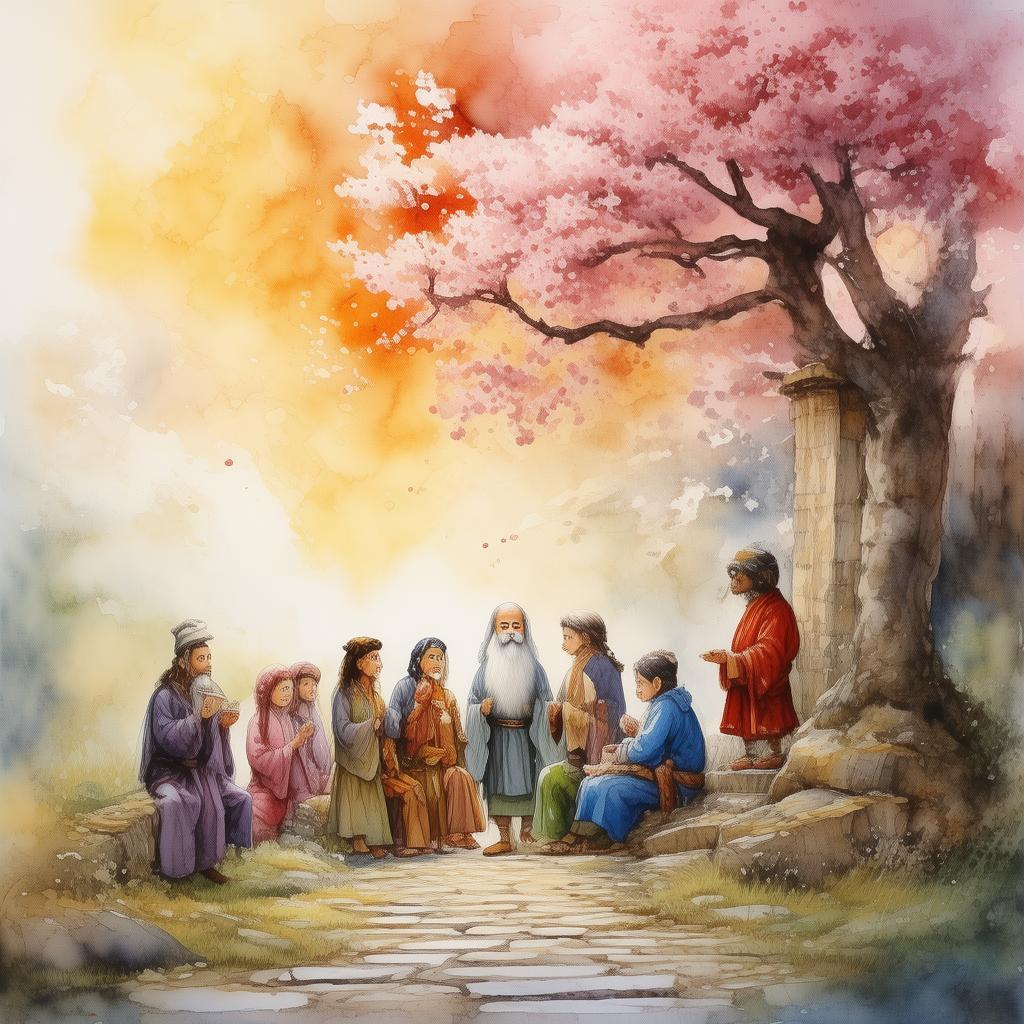
Liang Wei had dedicated his life to uncovering the secrets of the past. He was driven by a passion for history and a desire to understand the silent city that had eluded discovery for so long. He spent years researching, piecing together scattered clues, and eventually uncovered a map that led him to a hidden entrance beneath the city's central square.
With a mixture of excitement and trepidation, Liang Wei descended into the darkness. The air was thick with the scent of damp earth and ancient stone. As he ventured deeper, the walls around him seemed to hum with a story waiting to be told. His flashlight flickered, casting eerie shadows on the walls, which were adorned with intricate carvings and ancient symbols.
Suddenly, the ground trembled, and the walls began to crumble. Liang Wei barely had time to brace himself before a massive stone door came crashing down, blocking his path. He stumbled back, the weight of the door bearing down on him, and in that moment, he realized the true extent of his discovery.
The map had led him to the lost city's library, but the door had been sealed for centuries. Determined to uncover the secrets of the past, Liang Wei worked tirelessly, using every tool at his disposal to break through the ancient barrier. Days turned into weeks, and weeks into months, as he toiled in the darkness.
One evening, as the sun began to set, casting a golden glow on the walls, Liang Wei heard a faint whisper. It was a voice, barely audible, calling his name. He followed the sound, and to his astonishment, he found a hidden chamber filled with scrolls and ancient books. Each scroll contained a piece of the city's history, a story that had been lost to time.
As Liang Wei pored over the scrolls, he discovered a shocking truth: the city had not vanished but had been hidden away, preserved in time. The people of Shangcheng had chosen to seclude themselves from the world, to live in silence and contemplation. The knowledge in the library was a treasure trove of wisdom, but it came with a heavy price.
The city's inhabitants had become so consumed by their pursuit of knowledge that they had neglected the very essence of human connection and understanding. Their isolation had led to conflict and division, and ultimately, to their own undoing.
Liang Wei's heart sank as he realized the full extent of the city's legacy. The knowledge of the lost city could be a powerful force for good, but only if it was used wisely. He knew that he had to share the city's story, to bring the people of Shangcheng together and help them reconcile with their past.
With renewed determination, Liang Wei began to piece together the story of the lost city, traveling to villages and cities, sharing his findings with anyone who would listen. He spoke of the city's wisdom, but more importantly, he spoke of the need for reconciliation and understanding.
The journey was not easy. He faced skepticism and resistance, but he pressed on, driven by a belief that the story of the lost city could heal old wounds and build a bridge between the past and the present. As he shared his discoveries, the people of Shangcheng began to listen, to reflect, and to understand.
In the end, Liang Wei's quest for the lost city was not just a journey into the past; it was a journey into the heart of humanity. It was a story of silence, of knowledge, and of the power of reconciliation. And it was a story that would forever change the city of Shangcheng, ensuring that the legacy of the silent city would live on, not just in history books, but in the hearts and minds of its people.
✨ Original Statement ✨
All articles published on this website (including but not limited to text, images, videos, and other content) are original or authorized for reposting and are protected by relevant laws. Without the explicit written permission of this website, no individual or organization may copy, modify, repost, or use the content for commercial purposes.
If you need to quote or cooperate, please contact this site for authorization. We reserve the right to pursue legal responsibility for any unauthorized use.
Hereby declared.
